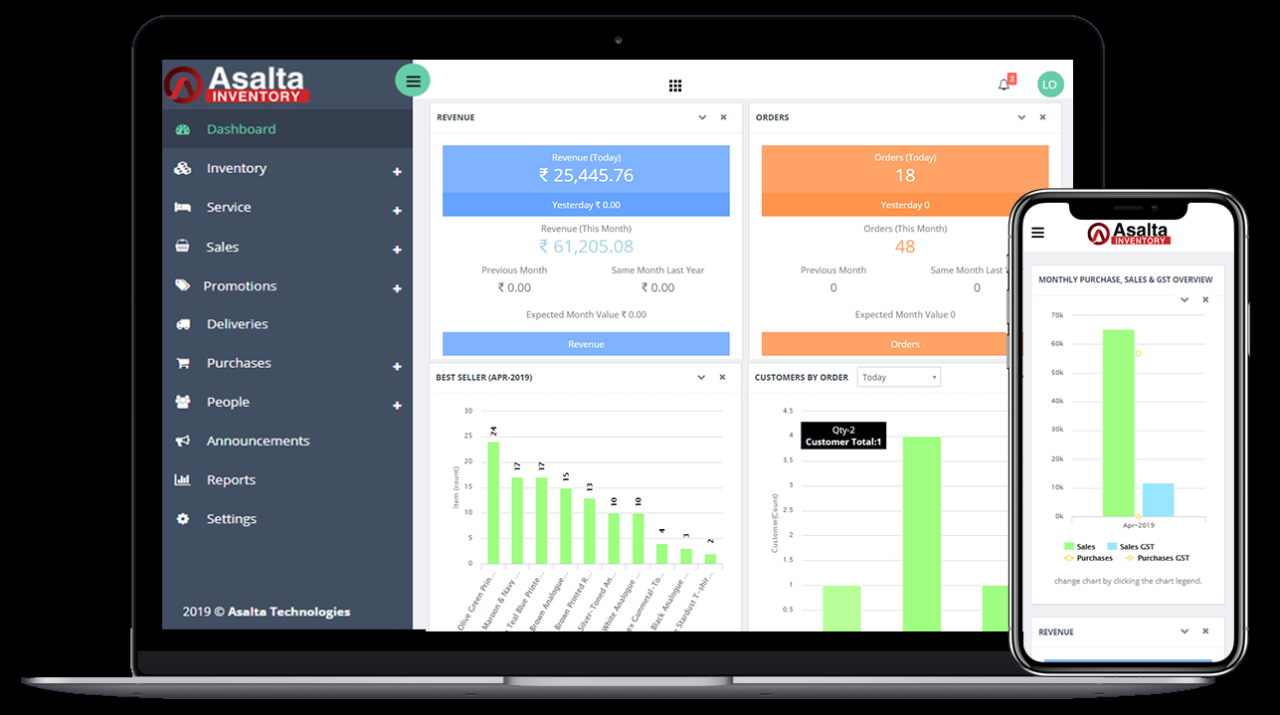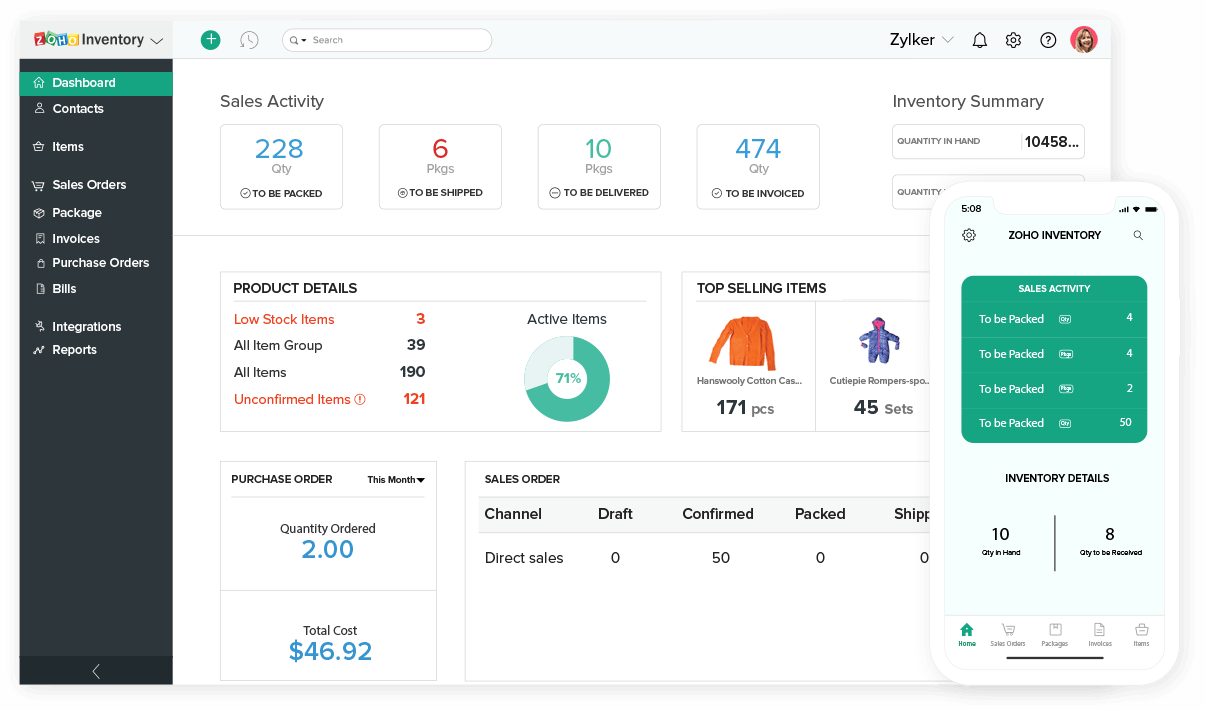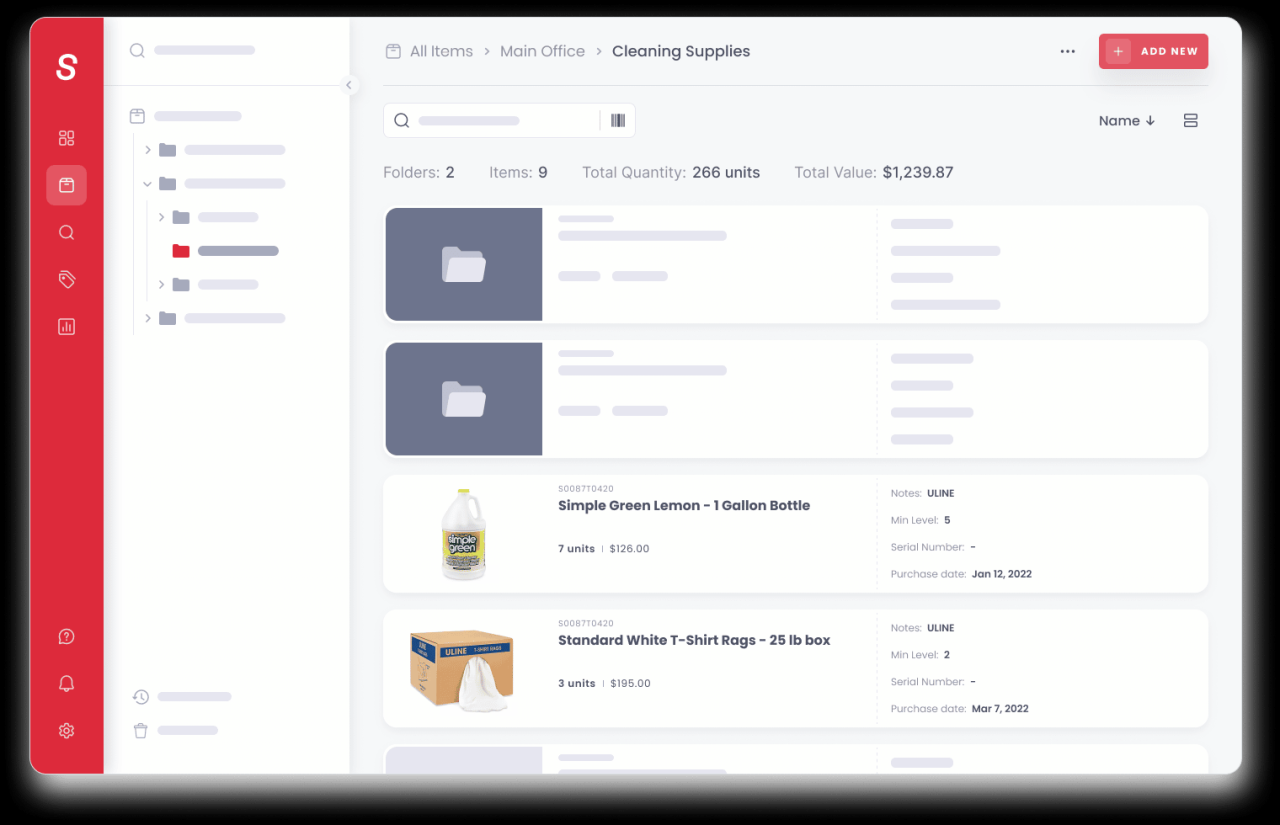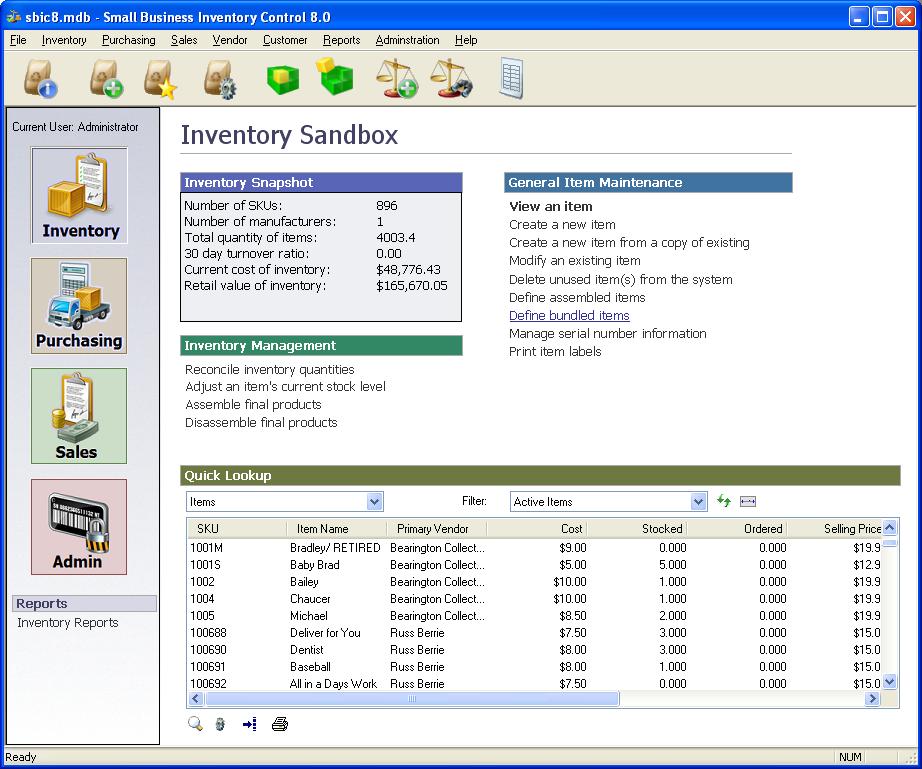Small business software sales inventory ios – In the realm of small business software, iOS inventory management solutions stand out as a beacon of efficiency and growth. With the proliferation of iOS devices, these apps offer unparalleled convenience, precision, and real-time insights, revolutionizing the way small businesses manage their inventory.
iOS inventory management apps provide a comprehensive suite of features tailored to the unique needs of small businesses. From seamless barcode scanning and stock level tracking to advanced reporting and analytics, these solutions empower businesses to streamline their operations, reduce costs, and enhance customer satisfaction.
Software Solutions for Small Businesses

For small businesses, using software specifically designed for their needs can provide numerous benefits. These solutions streamline operations, improve efficiency, and help businesses grow. There are various types of software available, including customer relationship management (CRM), accounting, and inventory management.
CRM Software
CRM software helps businesses manage customer interactions and relationships. It centralizes customer data, tracks interactions, and provides tools for managing sales, marketing, and customer service. Examples of popular CRM software for small businesses include Salesforce, HubSpot, and Zoho CRM.
Accounting Software
Accounting software automates financial tasks such as invoicing, expense tracking, and financial reporting. It helps businesses stay organized, comply with tax regulations, and make informed financial decisions. QuickBooks, Xero, and FreshBooks are popular accounting software solutions for small businesses.
Inventory Management Software, Small business software sales inventory ios
Inventory management software helps businesses track and manage their inventory levels. It provides real-time visibility into stock levels, facilitates order fulfillment, and optimizes inventory replenishment. Some popular inventory management software for small businesses include Stitch Labs, Ordoro, and Cin7.
Inventory Management for Small Businesses

Inventory management is crucial for small businesses as it enables them to track and control their stock levels, ensuring they have the right products, in the right quantities, at the right time. Effective inventory management helps businesses minimize losses due to overstocking or understocking, optimize cash flow, and improve customer satisfaction by fulfilling orders promptly.
There are several methods of inventory management that small businesses can adopt, each with its advantages and disadvantages. Some common methods include:
First-In, First-Out (FIFO)
FIFO assumes that the first items purchased are the first to be sold. This method is often used for perishable goods or products with a short shelf life, as it helps ensure that older items are sold before they expire.
Last-In, First-Out (LIFO)
LIFO assumes that the last items purchased are the first to be sold. This method can be beneficial for businesses that experience rising inventory costs, as it allows them to recognize the cost of goods sold at the most recent purchase price.
ABC Analysis
ABC analysis classifies inventory items into three categories: A, B, and C. Category A items are the most valuable and represent the highest percentage of total inventory value. Category B items have moderate value and turnover, while Category C items have the lowest value and turnover.
By focusing on managing Category A and B items effectively, businesses can optimize their inventory management processes.
In addition to these methods, small businesses can implement various strategies to optimize their inventory management processes, such as:
- Regularly conducting inventory audits to ensure accuracy.
- Using inventory management software to automate tasks and gain real-time visibility into stock levels.
- Establishing minimum and maximum stock levels to prevent overstocking and understocking.
- Implementing a just-in-time (JIT) inventory system to minimize inventory holding costs.
- Partnering with suppliers to negotiate favorable terms and ensure timely delivery of goods.
iOS Applications for Small Business Inventory

iOS applications offer a convenient and efficient solution for small businesses to manage their inventory. These apps are designed to streamline inventory processes, reduce errors, and provide real-time visibility into stock levels.
Advantages of iOS Inventory Management Apps
- Mobility:iOS apps can be accessed from anywhere, allowing businesses to manage their inventory on the go.
- Ease of Use:Designed with user-friendly interfaces, these apps are intuitive and easy to navigate.
- Real-Time Updates:iOS apps provide real-time updates on inventory levels, ensuring accurate data and preventing overstocking or stockouts.
- Barcode Scanning:Many apps offer barcode scanning capabilities, enabling quick and accurate data entry.
- Integration:iOS apps can integrate with other business systems, such as accounting and CRM software.
Key Features to Look for in an iOS Inventory Management App
When selecting an iOS inventory management app, consider the following key features:
- Inventory Tracking:The app should allow for easy tracking of inventory items, including quantity, location, and cost.
- Barcode Scanning:Barcode scanning capabilities are essential for efficient data entry and error reduction.
- Reporting:The app should provide robust reporting capabilities, allowing businesses to generate reports on inventory levels, sales, and more.
- Multi-User Access:Support for multiple users ensures that different employees can access and manage inventory information.
- Cloud-Based:Cloud-based apps offer flexibility and accessibility from any device with an internet connection.
Popular iOS Inventory Management Apps
Some popular iOS inventory management apps include:
- Square Inventory:A comprehensive inventory management app with features such as barcode scanning, multi-location tracking, and reporting.
- Shopventory:A user-friendly app designed for small businesses, offering inventory tracking, order management, and customer management.
- InFlow Inventory:A powerful app with advanced features such as multi-warehouse management, purchase order management, and custom reporting.
- Zoho Inventory:A cloud-based app that provides inventory tracking, order management, and sales analytics.
- QuickBooks Online Advanced Inventory:An inventory management solution integrated with QuickBooks Online accounting software.
Sales Strategies for Small Businesses

Developing effective sales strategies is crucial for the success of any small business. It involves identifying target customers, understanding their needs, and implementing tailored approaches to drive sales and build lasting relationships.
There are various sales techniques that small businesses can leverage to reach their target audience. Cold calling, email marketing, and social media marketing are among the most commonly used methods.
Cold Calling
- Involves directly reaching out to potential customers via phone calls.
- Requires a well-prepared script, clear communication skills, and the ability to handle objections effectively.
- Can be a cost-effective way to generate leads and qualify prospects.
Email Marketing
- Utilizes email campaigns to nurture leads, promote products or services, and drive sales.
- Involves building an email list, creating compelling content, and tracking campaign performance.
- Provides opportunities for targeted messaging and personalized communication.
Social Media Marketing
- Leverages social media platforms to connect with potential customers, build brand awareness, and drive traffic.
- Involves creating engaging content, running social media ads, and interacting with followers.
- Provides a platform for customer engagement, lead generation, and sales conversion.
Effective sales strategies also involve closing sales and building customer relationships. This includes negotiating deals, handling objections, and providing excellent customer service. By fostering strong relationships, small businesses can increase customer loyalty and generate repeat business.
Case Studies and Success Stories
Small businesses can benefit greatly from implementing software solutions and effective inventory management. Here are some case studies and success stories to illustrate the positive impact these solutions can have.
These case studies showcase the benefits and challenges faced by small businesses that have successfully implemented software solutions. They also highlight the success stories of small businesses that have improved their operations through effective inventory management.
Case Study: ABC Company
- ABC Company is a small business that sells office supplies.
- The company was facing challenges with inventory management, including stockouts and overstocking.
- ABC Company implemented a software solution that helped them track inventory levels, manage orders, and optimize stock levels.
- As a result, the company experienced a significant reduction in stockouts and overstocking, leading to improved customer satisfaction and increased sales.
Additional Resources

Explore a curated list of resources to empower your small business with comprehensive solutions and support.
This table categorizes resources into specific areas to assist you in finding the most relevant information quickly and efficiently.
Software Solutions
- Software Advice: https://www.softwareadvice.com/ (Reviews and recommendations for software solutions tailored to small businesses)
- Capterra: https://www.capterra.com/ (Comprehensive directory of software products, including reviews and user ratings)
- G2: https://www.g2.com/ (Peer-to-peer reviews and insights on software solutions)
Inventory Management
- Institute for Supply Management: https://www.instituteforsupplymanagement.org/ (Professional organization dedicated to inventory management and supply chain optimization)
- National Retail Federation: https://www.nrf.com/ (Resources and guidance on inventory management best practices for retailers)
- American Production and Inventory Control Society: https://www.apics.org/ (Educational materials and certification programs in inventory management)
Sales Strategies
- Salesforce: https://www.salesforce.com/resources/articles/sales-strategy/ (Articles and insights on sales strategies and techniques)
- HubSpot: https://blog.hubspot.com/sales (Blog covering sales best practices, lead generation, and customer relationship management)
- The Sales Hacker: https://www.saleshacker.com/ (Community and online publication for sales professionals)
Closing Notes: Small Business Software Sales Inventory Ios
As the business landscape continues to evolve, iOS inventory management solutions will undoubtedly play an increasingly vital role. By embracing these innovative tools, small businesses can unlock new levels of efficiency, optimize their inventory processes, and gain a competitive edge in today’s dynamic market.
Commonly Asked Questions
What are the key benefits of using iOS inventory management apps?
iOS inventory management apps offer numerous benefits, including real-time inventory tracking, barcode scanning, advanced reporting, and seamless integration with other business systems.
How do iOS inventory management apps help small businesses?
These apps streamline inventory management processes, reduce costs, improve accuracy, and enhance customer satisfaction by providing real-time visibility and control over inventory levels.
What are some popular iOS inventory management apps?
Some popular iOS inventory management apps include Square Inventory, QuickBooks Commerce, and Zoho Inventory.